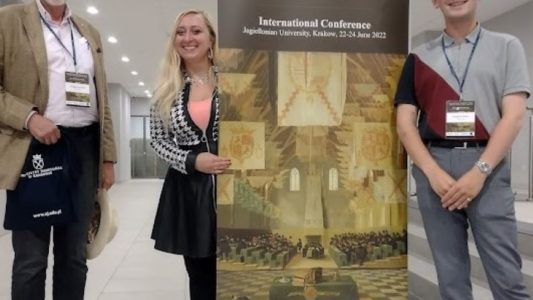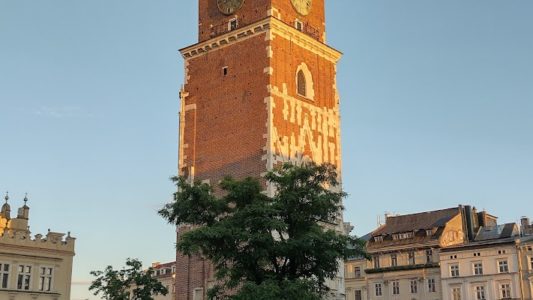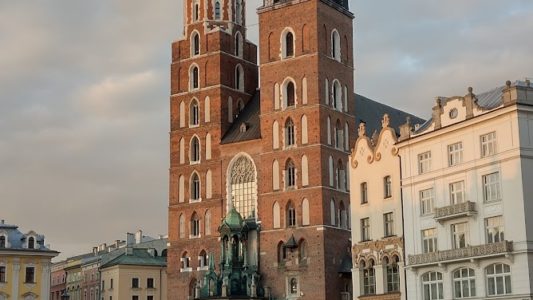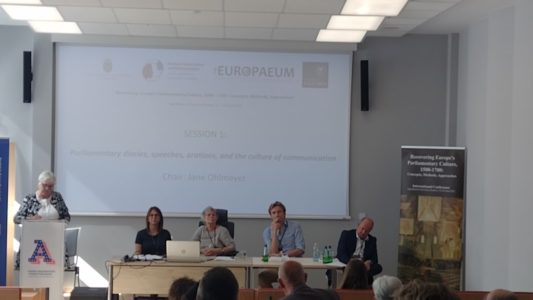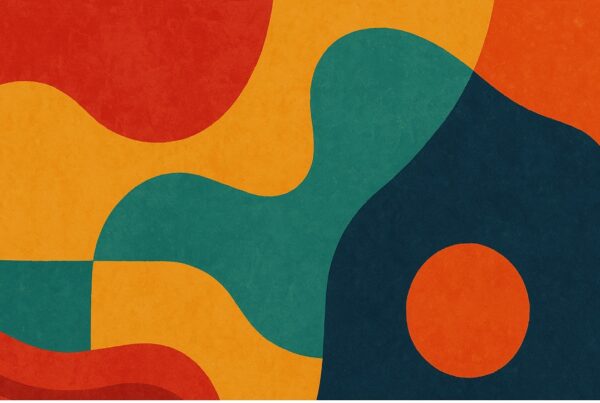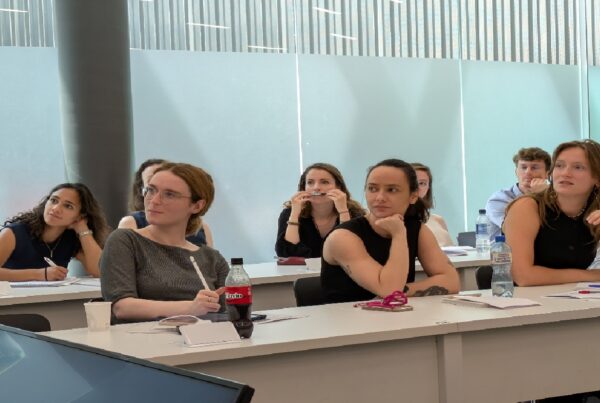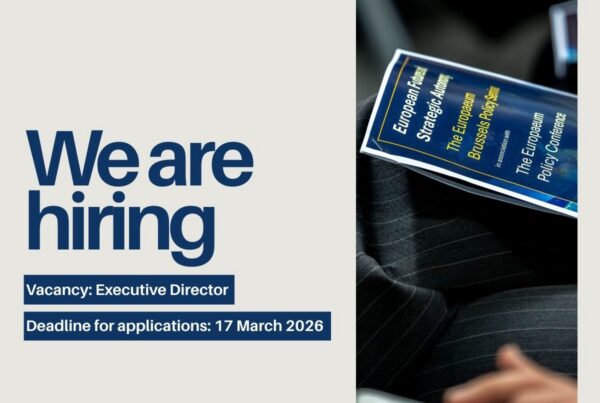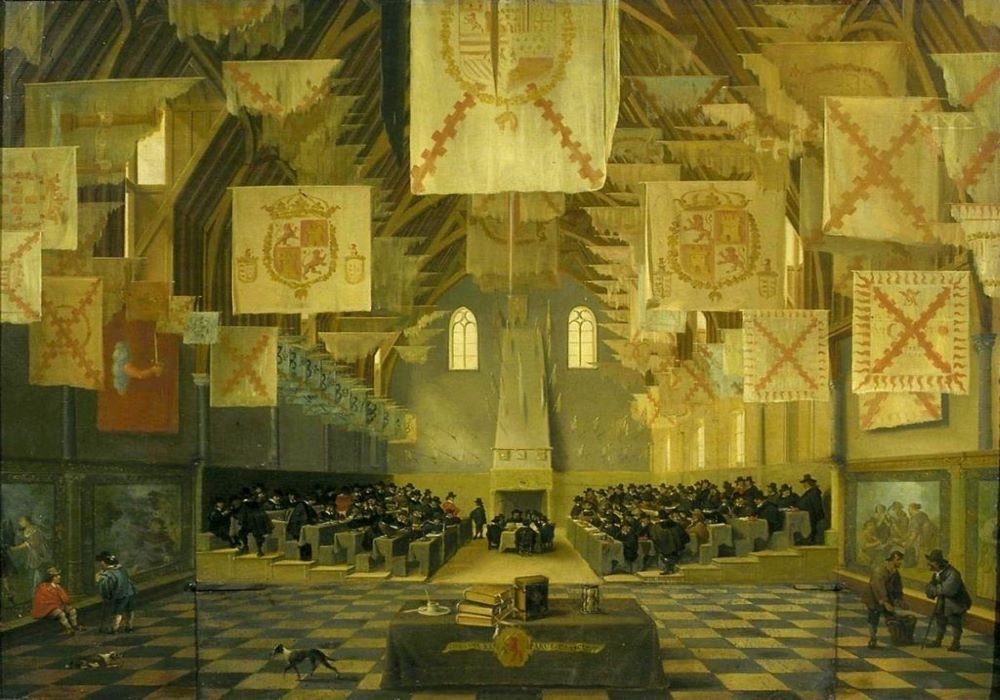
On 22 to 24 June the Jagiellonian University hosted an international conference, Recovering Europe’s Parliamentary Culture 1500-1700. Co-organised with Prof. Dorota Pietrzyk-Reeves (Jagiellonian University) and the Europaeum, it brought together scholars from across Europe to discuss a new approach to parliaments, diets, cortes, estates, sejms, etc. in the early modern period. The overarching theme was how to take institutions which have predominantly been studied from a bureaucratic or nation-building perspective and better understand the way they functioned through applying cultural and transatlantic approaches. As the conference showed, by analysing these bodies’ material culture, spatial layout, rituals, and histories, as well as the discursive strategies used by their members we can gain new insights into the decisions these bodies made and their role in the early modern political imagination.
The keynote lecture was given by Dr Paul Seaward from The History of Parliament Trust, exploring the notion of a cohesive parliamentary culture in early modern Europe, with others including Prof. Steven Gunn and Prof. Paulina Kewes (University of Oxford) as well as Prof. Steffen Huber and Prof. Dorota Pietrzyk-Reeves (Jagiellonian University) speaking over the course of the conference.
This event was part of wider Oxford University project on European parliamentary culture. If you would like to learn more about the history of parliament in Europe, view the Centre for Intellectual History’s blog series.
Student Feedback
Charles West
The University of Oxford
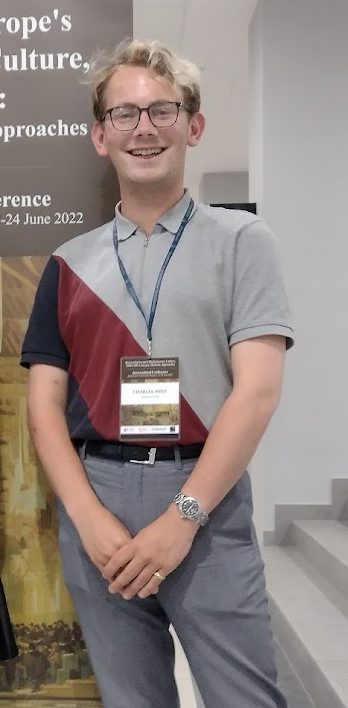
For me, the best part of attending the conference was the variety of papers that I got to listen to. The topic of the conference, Parliamentary Culture from 1500-1700, really allowed people from various disciplines to take the title where they wanted to. Geographically, there were experts who spoke about parliaments from Spanish colonies in America across to Transylvania and the Polish-Lithuanian Commonwealth. This was valuable as, despite knowing very little about these bodies at the beginning, the internationality of the conference allowed for, I think, everyone to gain an understanding that went beyond their own expertise without it being overwhelming.
The speakers also integrated a variety of methods, which again made the conference interesting in considering how I would like to go ahead with my own future research. From diplomatic history and political diaries to projects involving digitalisation and quantitative analysis of parliamentary records, as well as artistic and literary analysis, being able to see the ways in which other people are working really brought home that there’s not a single right way of studying or researching the humanities. Rather, all these methods came together harmoniously to give an overview of what can be gained from looking at history from different perspectives.
Pavlina Sedlarikova
Charles University, Prague
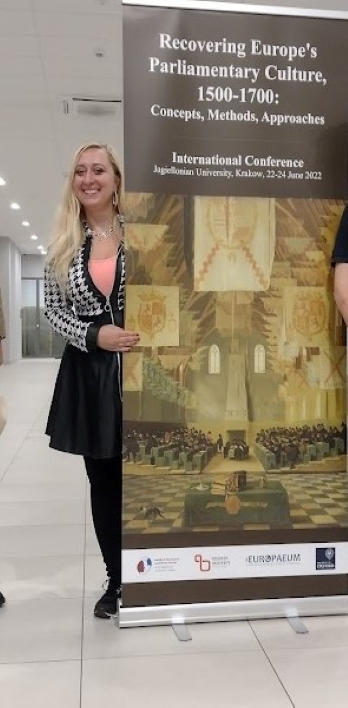
The event was spectacular. I was not only inspired by amazing presentations, but I had the opportunity to discuss my ideas on how to make a positive change in society with professors from different countries. My overall vision is that mediation/conflict resolution will be a standard protocol at all educational institutions and businesses to solve internal situations…I believe universities can benefit from offering such mediation.
This event made it possible to make many international contacts with like-minded people, exchange opinions and challenge perspectives of thinking. I was also able to find out more information about processes in other institutions and to get inspiration for further research.
Special Thanks to the Europeaum, Oxford University and Jagiellonian University. It was an absolute pleasure and honor to be part of your team and thank you for this amazing opportunity.

